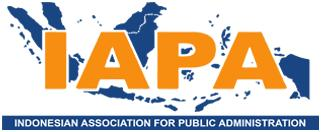A Policy Implementation Model in Decentralised Governance: Human Development in West Bandung Regency
Abstrak
Regional division as a decentralisation strategy in Indonesia has created new autonomous regions (DOB) with the hope of improving public services and community welfare, including human development. However, in practice, many DOBs have lagged behind in achieving the Human Development Index (HDI). This study aims to analyse the implementation of regional division policies in improving the HDI in West Bandung Regency, using the modified Van Meter and Van Horn model with the addition of a leadership dimension. The study employs a qualitative approach with a case study method, data collection through in-depth interviews, document analysis, and participatory observation. The findings reveal that the implementation of policies in KBB still faces various challenges, such as the lack of alignment between policy objectives and regional performance indicators, resource constraints, bureaucratic fragmentation, and weak capacity and motivation among implementing agents. The addition of the leadership element has proven to be a crucial variable in bridging the gap between central policies and local realities, as well as enhancing the effectiveness of cross-institutional coordination and communication. These findings contribute to the development of policy implementation theory by expanding the classical analytical framework. This research is relevant for policymakers, particularly in designing more adaptive, responsive, and context-based local policy implementation strategies.
Kata Kunci
Teks Lengkap:
PDF (English)Referensi
Aminah, Evana, E., & Khairudin. (2019). Efektivitas 20 Tahun Implementasi Pemekaran Daerah Di Indonesia. AJIE (Asian Journal of Innovation and Entrepreneurship), 4(3), 181–185.
Andersen, S. C., Bruntse, M., James, O., & Jilke, S. (2024). Does Work Quality Differ between the Public and Private Sectors? Evidence from Two Online Field Experiments. Journal of Public Administration Research and Theory, 34(1), 80–91. https://doi.org/10.1093/jopart/muad011
Connaughton, B. (2024). Multi-level governance and policy contestation: Ambiguity and conflict in the implementation of peatland conservation in Ireland. Gestión y Análisis de Políticas Públicas, 109–122. https://doi.org/10.24965/gapp.11266
Dove, M. G., & Freeley, M. E. (2011). The effects of leadership on innovative program implementation. Delta Kappa Gamma Bulletin, 77(3), 25–32. http://www.deltakappagamma.org/NH/DKGbulletinspring2011.PDF#page=25
Fitrani, F., Hofman, B., & Kaiser *, K. (2005). Unity in diversity? The creation of new local governments in a decentralising Indonesia. Bulletin of Indonesian Economic Studies, 41(1), 57–79. https://doi.org/10.1080/00074910500072690
Gilson, L. (2016). Everyday Politics and the Leadership of Health Policy Implementation. Health Systems & Reform, 2(3), 187–193. https://doi.org/10.1080/23288604.2016.1217367
Grindle, M. S. (1980). Politics and policy implementation in the Third World. Princeton University Press.
Hill, M., & Hupe, P. (2014). Implementing public policy: An introduction to the study of operational governance (3rd ed.). SAGE Publications.
John W. Creswell. (2023). Research design: Qualitative, quantitative, and mixed methods approaches (6th ed.). SAGE Publications.
Matland, R. E. (1995). Synthesizing the Implementation Literature: The Ambiguity-Conflict Model of Policy Implementation. Journal of Public Administration Research and Theory. https://doi.org/10.1093/oxfordjournals.jpart.a037242
Mavrogordato, M., & White, R. S. (2020). Leveraging Policy Implementation for Social Justice: How School Leaders Shape Educational Opportunity When Implementing Policy for English Learners. Educational Administration Quarterly, 56(1), 3–45. https://doi.org/10.1177/0013161X18821364
Mazmanian, D. A., & Sabatier, P. A. (1983). Implementation and public policy. Scott, Foresman.
Miles, M. B., Huberman, A. M., & Saldaña, J. (2014). Qualitative data analysis: A methods sourcebook (3rd ed.). SAGE Publications.
Muqoyyidin, A. W. (2013). Pemekaran Wilayah dan Otonomi Daerah Pasca Reformasi di Indonesia: Konsep, Fakta Empiris dan Rekomendasi ke Depan. Jurnal Konstitusi, 10(2), 287–310. https://doi.org/https://doi.org/10.31078/jk1025
Nubala, A. A., Muhtar, E. A., & Buchari, R. A. (2024). Bureaucratic Reform at Bandung Departement of Culture and Tourism in the New Public Service Perspective. Jurnal Manajemen Pelayanan Publik, 8(1), 255–274. https://doi.org/10.24198/jmpp.v8i1.46476
Nurliawati, N. (2014). Analisis penataan daerah berdasarkan perspektif keuangan negara: Desain besar penataan daerah (Desertarda) tahun 2010–2015. Jurnal Ilmu Administrasi, 11(3), 441–456.
O’Toole, L. J. (2000). Research on Policy Implementation: Assessment and Prospects. Journal of Public Administration Research and Theory, 10(2), 263–288. https://doi.org/10.1093/oxfordjournals.jpart.a024270
Patton, M. Q. (2002). Qualitative research and evaluation methods (3rd ed.). SAGE Publications.
Rifdan. (2010). Implementasi kebijakan pemekaran daerah dalam mendukung integrasi nasional di Kabupaten Luwu Timur. Jurnal Administrasi Publik, 7(1), 23–39.
Rudiansyah, B. (2024). Evaluasi kebijakan pemerintah tentang pemekaran daerah otonomi baru dalam bidang pendidikan dan kesehatan (Studi pada Kabupaten Bandung Barat dan Kota Cimahi 2013–2021). Universitas Padjadjaran.
Santika, R. H., Santoso, B., & Mahmudi, H. (2018). Analisis Dampak Pemekaran Daerah Terhadap Kinerja dan Pemerataan Ekonomi di Kabupaten Lombok Utara. JIP (Jurnal Ilmu Pemerintahan) : Kajian Ilmu Pemerintahan Dan Politik Daerah, 3(1), 15–23. https://doi.org/10.24905/jip.3.1.2018.15-23
Sawir, M., Robo, S., Abubakar, F., & Kamaluddin, S. (2023). Implementation Of Public Services In The Digital Era As A Public Information Media Regional Government Of Jayapura Regency, Papua Province. Jurnal Manajemen Pelayanan Publik, 6(2), 212. https://doi.org/10.24198/jmpp.v6i2.45532
Sen, A. (1999). Development as freedom. Alfred A. Knopf.
Sjafii, M. A., Rasyid, M. R., & Hadi, S. (2005). Desentralisasi dan otonomi daerah: Desentralisasi, demokratisasi, dan akuntabilitas pemerintahan daerah. Lembaga Administrasi Negara dan Yayasan Obor Indonesia.
Smoke, P. (2015). Rethinking Decentralization: Assessing Challenges to a Popular Public Sector Reform. Public Administration and Development, 35(2), 97–112. https://doi.org/10.1002/pad.1703
Tenrini, R. H. (2013). Pemekaran daerah: Kebutuhan atau euforia demokrasi? Mengapa harus mekar. Kementerian Keuangan.
UNDP. (2016). Human development report 2016: Human development for everyone.
Van Meter, D. S., & Van Horn, C. E. (1975). The Policy Implementation Process. Administration & Society, 6(4), 445–488. https://doi.org/10.1177/009539977500600404
West Java Provincial Statistics Agency. (2023). Indeks Pembangunan Manusia (IPM) Tahun 2023. West Java Provincial Statistics Agency.
DOI: https://doi.org/10.24198/jmpp.v9i2.63982
Refbacks
- Saat ini tidak ada refbacks.
Jurnal Manajemen Pelayanan Publik Indexed By:



This work is licensed under a Creative Commons Attribution-ShareAlike 4.0 International License.


















21.png)



.png)